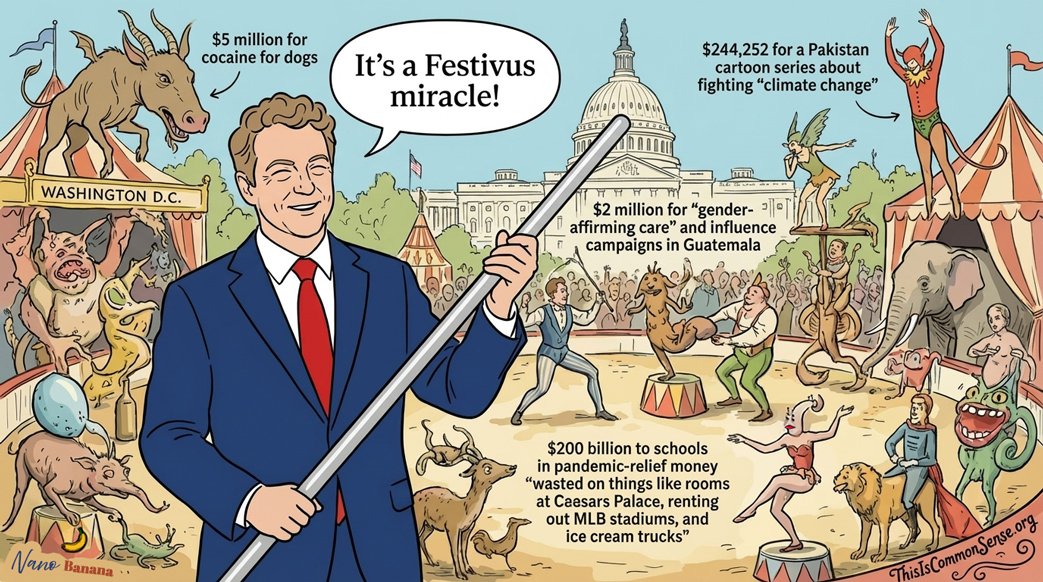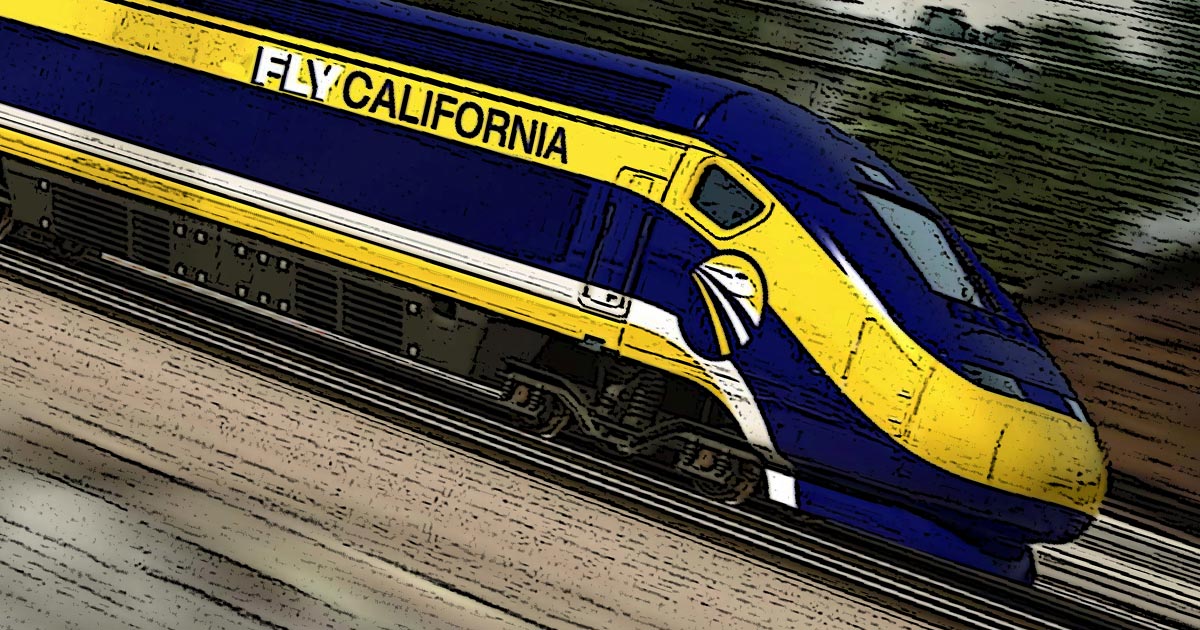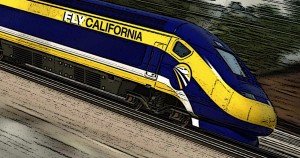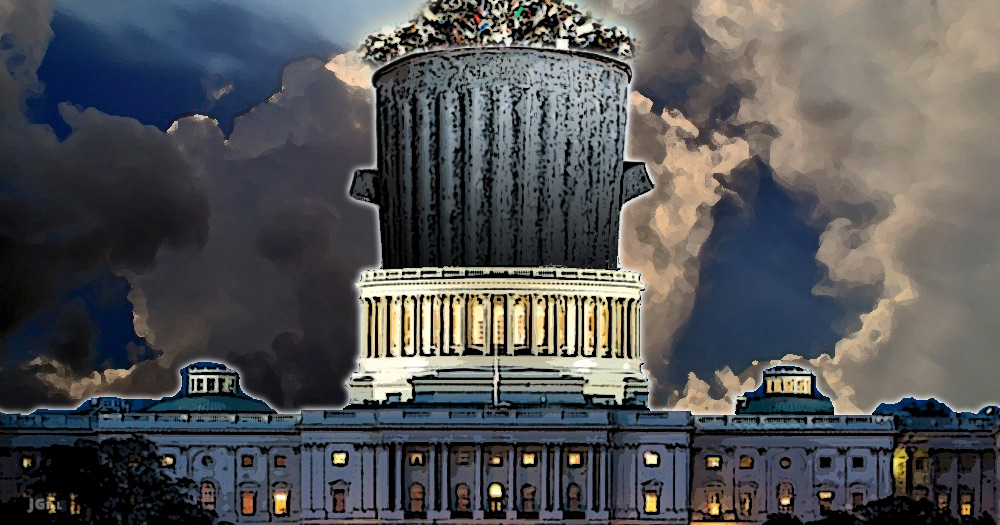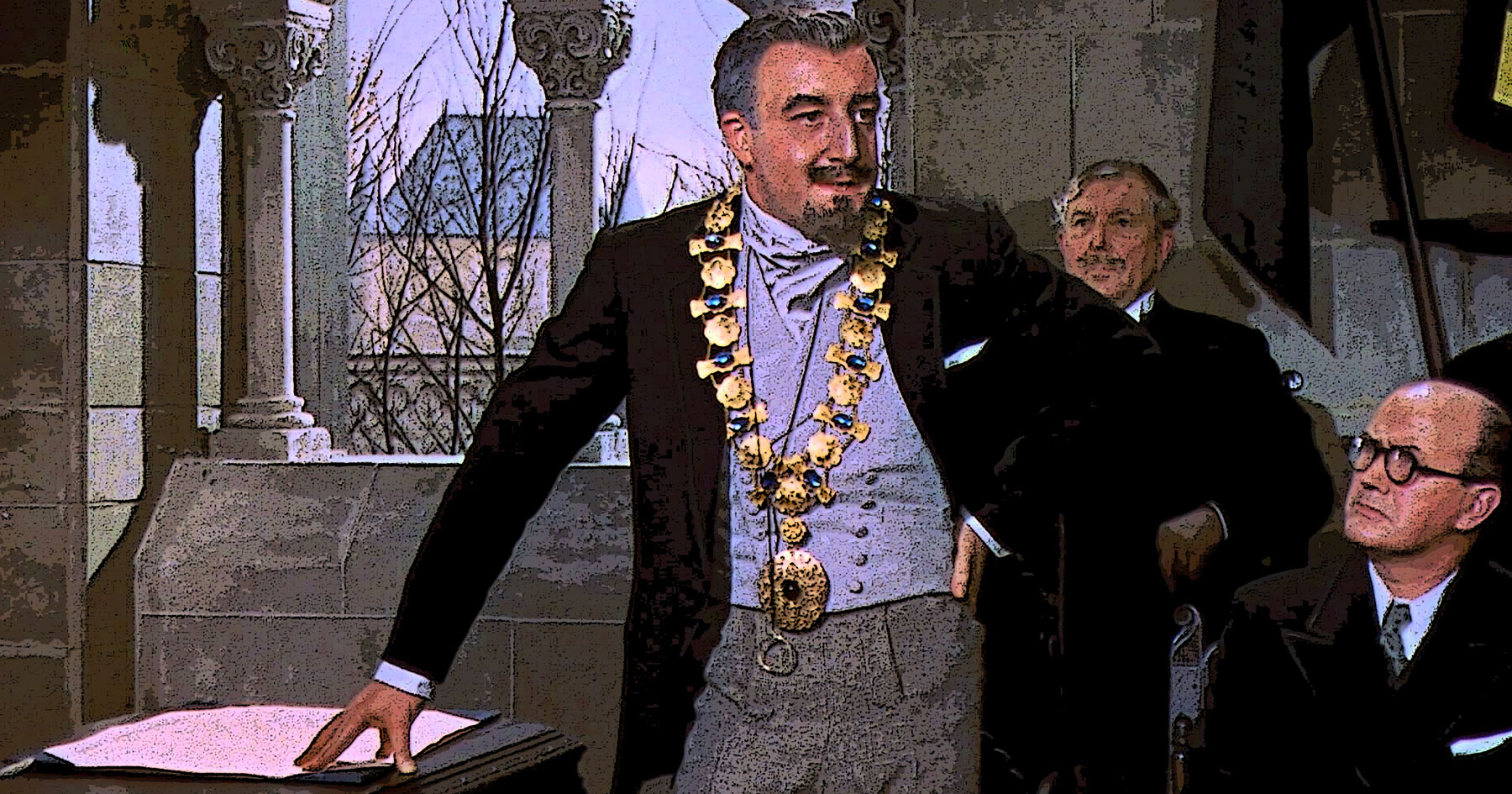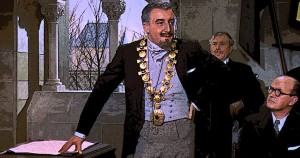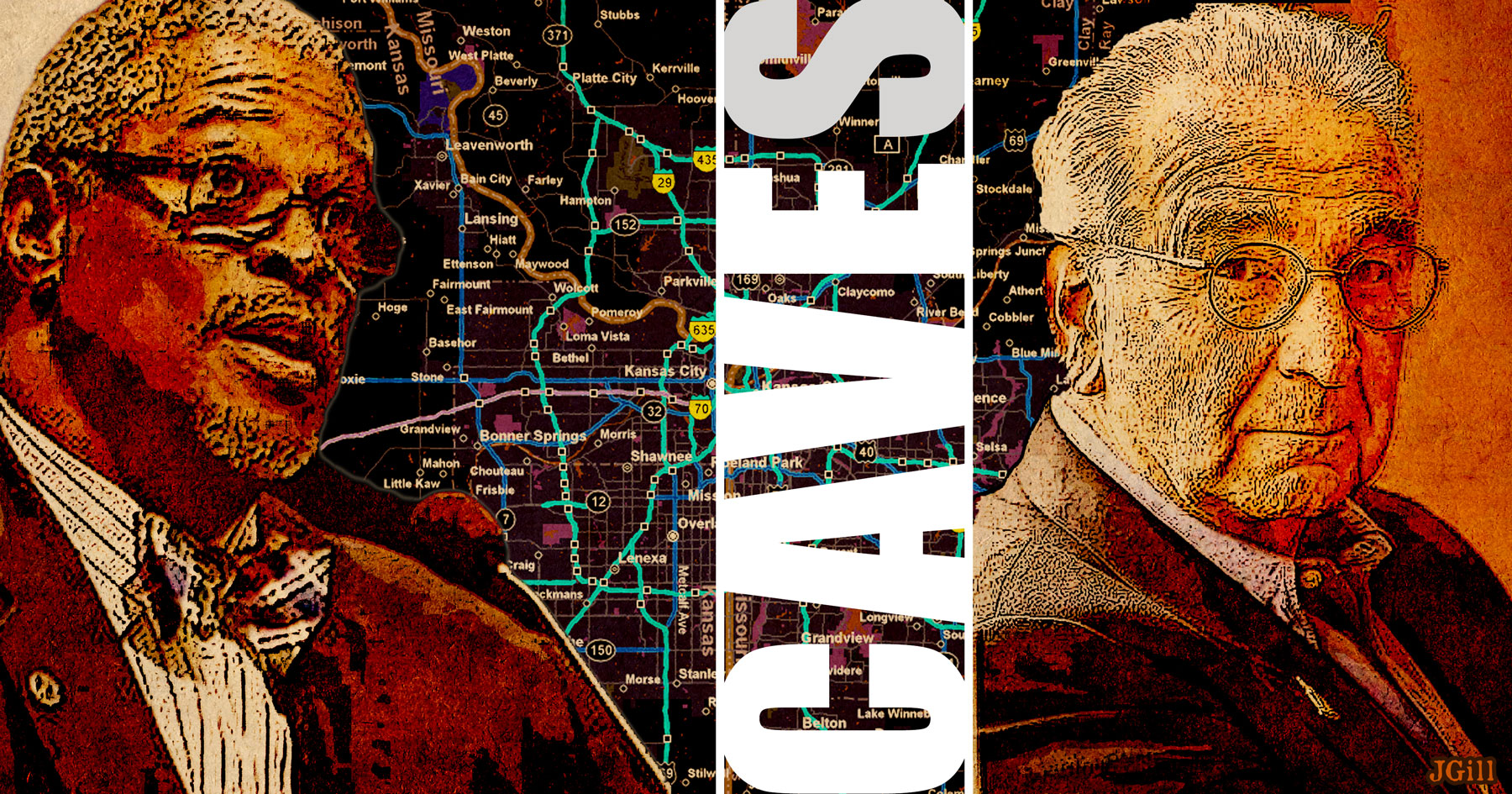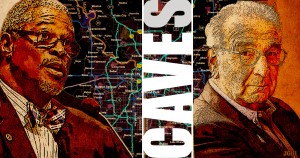Senator Rand Paul has just issued The Festivus Report 2025, in part a laundry list of absurd government spending at your expense and mine — to buy things that nobody wants but all of us American taxpayers must pay for.
Well, not nobody-nobody: The recipients of the largesse? They’re the exception; they want it. But these exceptions can’t justify expenditures wholly unrelated to the proper government function of protecting life and liberty from foreign and domestic threats.
“Congress keeps shoveling money toward pet projects and special interests while hardworking Americans pay the price through inflation and crushing interest rates — even after President Trump took action to end most foreign aid programs,” says Paul.
Examples:
- $5 million for cocaine for dogs.
- $3.3 million to Northwestern University to fund “safe space ambassadors” and combat “systemic racism.”
- $7.5 billion for an EV charger network that built just 68 charging stations throughout the country.
- $244,252 for a Pakistan cartoon series about fighting “climate change.”
- $2.8 million “for aborted fetal tissue to be implanted in humanized mice.”
- $2 million for “gender-affirming care” and influence campaigns in Guatemala.
- $200 billion to schools in pandemic-relief money “wasted on things like rooms at Caesars Palace, renting out MLB stadiums, and ice cream trucks.”
- $22.6 billon on “things like furniture, car repairs and home down payments, as well as welfare for illegal immigrants.”
- $700,000 to fuel anti-gas-stove propaganda.
And so much more. Take it all back, Santa!
This is Common Sense. I’m Paul Jacob.
Illustration created with Nano Banana and Fireflly
See all recent commentary
(simplified and organized)
See recent popular posts
